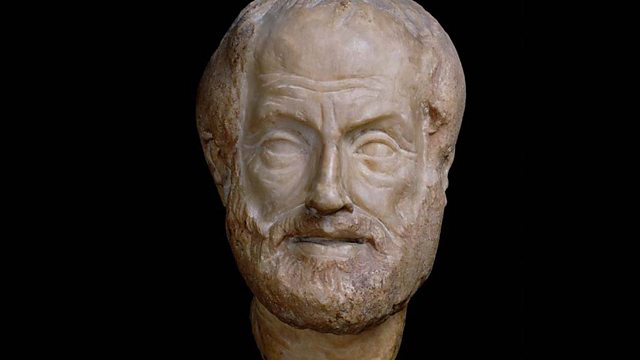Virtue
Melvyn Bragg discusses a history of the concept of virtue from the ancient Greeks to modern ideas, and examines why we need it and what ideals of behaviour provide a universal framework for it.
Melvyn Bragg and guests discuss the history of virtue. When Socrates asked the question βHow should man live?β Plato and Aristotle answered that man should live a life of virtue. Plato claimed there were four great virtues - Temperance, Justice, Prudence and Courage and the Christian Church added three more - Faith, Hope and Love. But where does the motivation for virtue come from? Do we need rules to tell us how to behave or can we rely on our feelings of compassion and empathy towards other human beings? Shakespeareβs Iago says βVirtue! A fig! βtis in ourselves that we are thus or thus. Our bodies are our gardens to the which our wills are gardeners. β So is virtue a character trait possessed by some but not others? Is it derived from reason? Or does it flow from the innate sympathies of the human heart? For the last two thousand years philosophers have grappled with these ideas, but now in the twenty first century a modern reappraisal of virtue is taking the argument back to basics with Aristotle. With Galen Strawson, Professor of Philosophy at the University of Reading; Miranda Fricker, Lecturer in Philosophy at Birkbeck, University of London; Roger Crisp, Uehiro Fellow and Tutor in Philosophy at St Anne's College, Oxford.
Last on
Broadcasts
- Thu 28 Feb 2002 09:02ΒιΆΉΤΌΕΔ Radio 4
- Thu 28 Feb 2002 21:30ΒιΆΉΤΌΕΔ Radio 4
Featured in...
![]()
Lessons in Life
A selection of programmes looking at self-improvement.
![]()
Ancient Greece—In Our Time
Browse the Ancient Greece era within the In Our Time archive.
![]()
Philosophy—In Our Time
From Altruism to Wittgenstein, philosophers, theories and key themes.
In Our Time podcasts
Download programmes from the huge In Our Time archive.
The In Our Time Listeners' Top 10
If youβre new to In Our Time, this is a good place to start.
Arts and Ideas podcast
Download the best of Radio 3's Free Thinking programme.
Podcast
-
![]()
In Our Time
Melvyn Bragg and guests discuss the ideas, people and events that have shaped our world.




